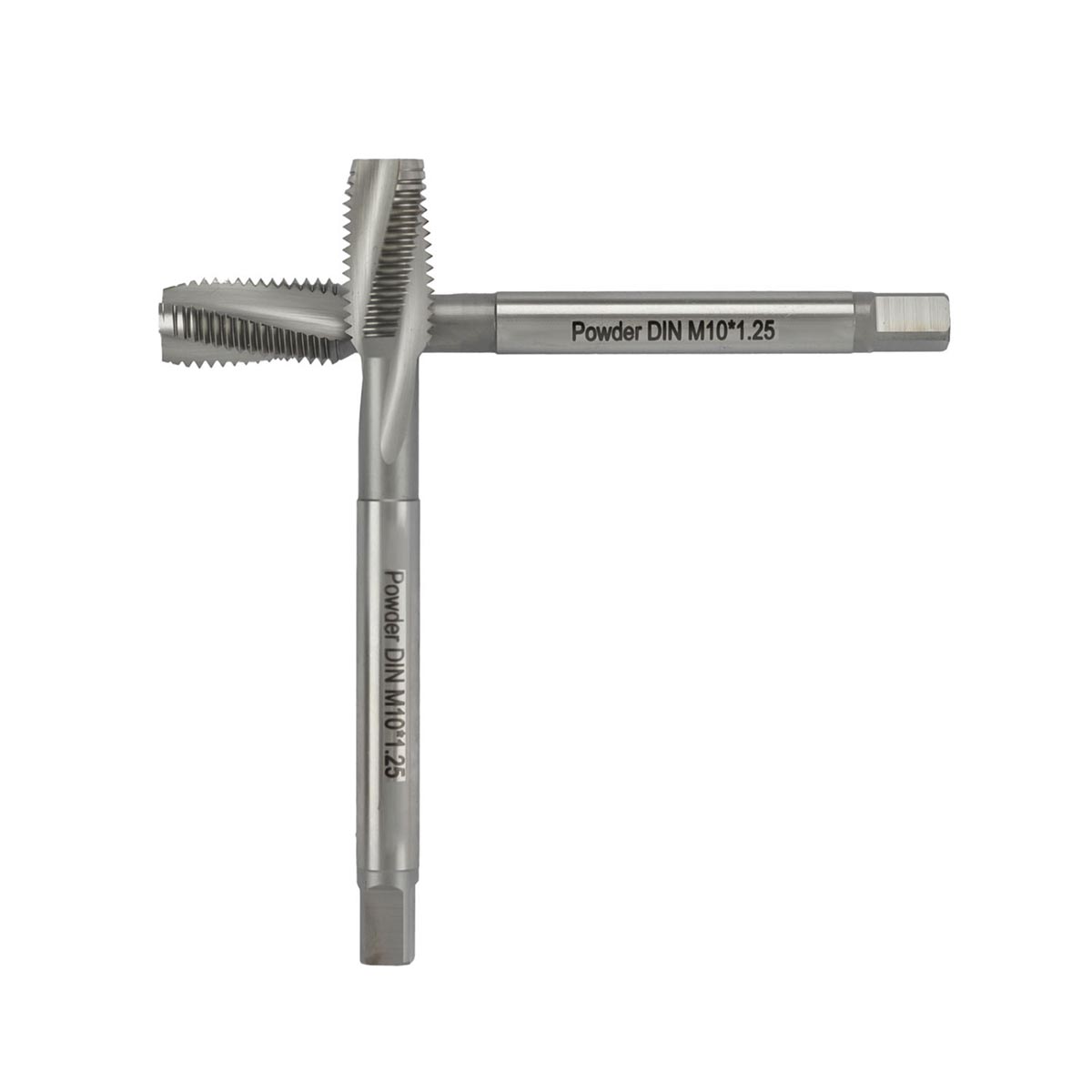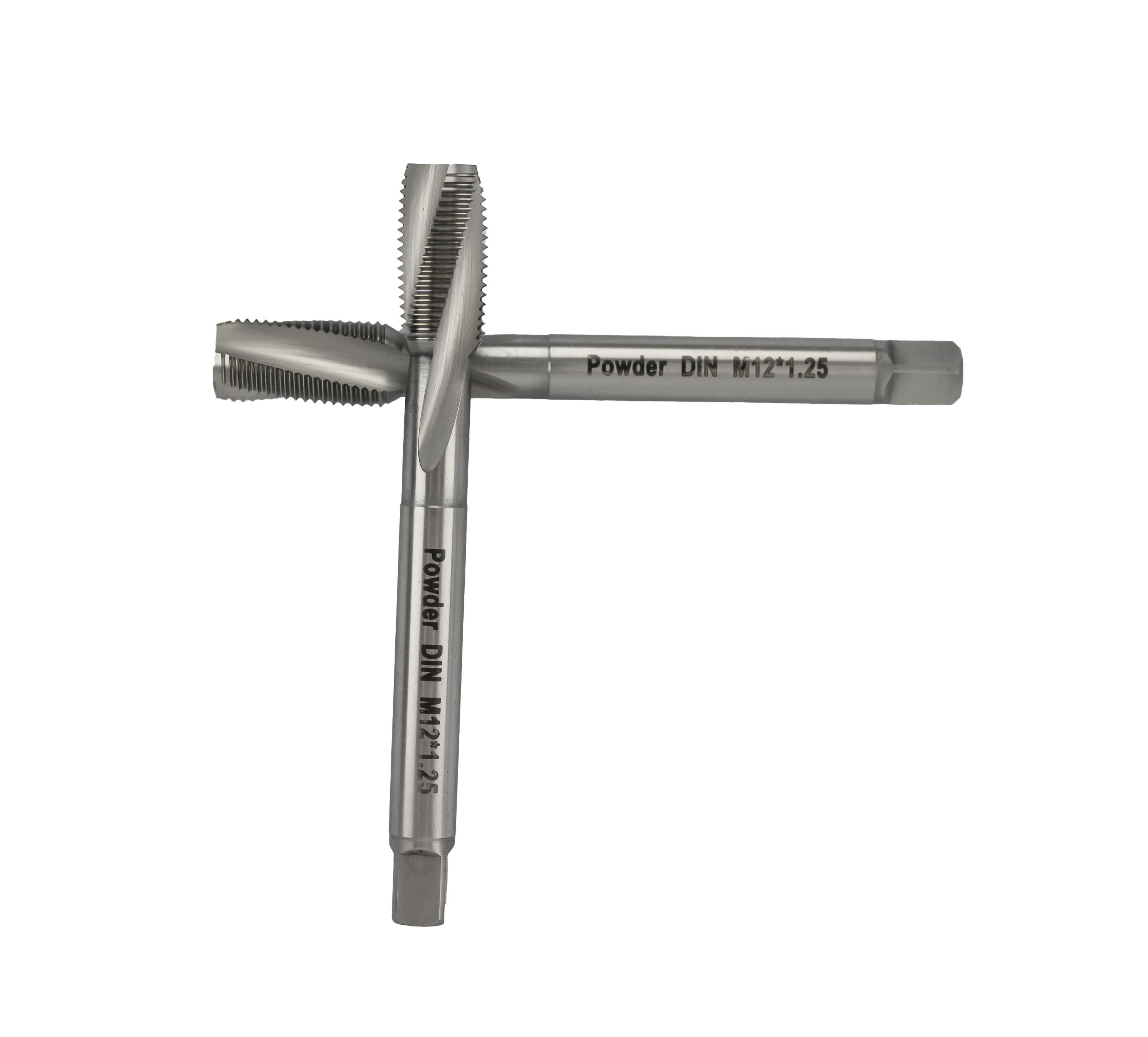
The EV industry’s demand for high-performance taps is multi-faceted, focusing on improving production efficiency, extending tool life, and meeting the machining needs of complex materials. As EV technology advances, the demand for taps that are more efficient, precise, and environmentally friendly will continue to grow, making high-performance taps an essential part of modern electric vehicle manufacturing.
The electric vehicle (EV) industry has a growing demand for high-performance taps, driven by several key factors:
The manufacturing of electric vehicles involves numerous precision components, especially in areas like battery systems, electric motors, and electronics. High-performance taps ensure thread machining accuracy, meeting the stringent quality standards required in the EV industry. For example, components such as Battery Management Systems (BMS), motor stators, and rotors all require extremely precise thread cutting for assembly.
The EV industry utilizes a wide variety of materials, including aluminum alloys, high-strength steels, composite materials, and advanced plastics. Each material has unique cutting characteristics, necessitating different types of taps. High-performance taps (such as coated taps or carbide taps) are designed to handle these challenges by providing superior hardness, wear resistance, and heat resistance, ensuring stable performance during machining.
Lightweighting is a crucial design strategy for improving the range and efficiency of electric vehicles, leading to the increased use of aluminum alloys and magnesium alloys. These materials are more challenging to machine due to their tendency to cause tool wear and adhesion. High-performance taps help mitigate these issues by optimizing cutting forces, temperatures, and tool life, ensuring smooth machining processes.

Electric vehicle manufacturing often involves high-volume production, particularly for components like batteries, electric motors, and chassis parts. The use of high-performance taps can significantly improve production efficiency by reducing downtime and tool change frequency, thus meeting the high-demand production requirements of the EV industry.
The design of EV components is increasingly complex, especially when it comes to machining threads in battery packs, electric motors, and precision electronics modules. High-performance taps offer better control over cutting forces and provide more stability, reducing vibration and thermal damage, making them ideal for machining complex parts.
While high-performance taps may have a higher initial cost, their extended tool life and reduced maintenance requirements can help EV manufacturers lower overall costs. By minimizing downtime and tool replacements, high-performance taps contribute to cost savings in the long run, making them a cost-effective solution for high-volume production.
As the EV industry grows, environmental sustainability and eco-friendly production practices are becoming a greater focus. High-performance taps, particularly those made with environmentally friendly materials and coatings, reduce waste and emissions during machining. Their improved efficiency also contributes to energy savings, supporting the overall sustainability goals of the industry.
With the rise of smart manufacturing and Industry 4.0, electric vehicle manufacturers are increasingly adopting intelligent machining technologies, such as real-time monitoring and data analytics. These systems require high-performance taps that offer consistent performance and reliability, ensuring stable production processes and accurate data, which are essential for smart manufacturing.

In the electric vehicle (EV) industry, due to the diversity of materials and high precision requirements, the demand for high-performance taps is concentrated on the following materials:
Application: Carbide taps are commonly used for machining high-strength steels, aluminum alloys, and other hard materials, which are widely used in electric vehicle components such as drive systems, battery packs, and electric motors.
Advantages: Carbide offers superior hardness and wear resistance, making it ideal for high-speed and high-load cutting conditions. It significantly improves production efficiency and tool life.
Application: HSS taps are used for machining common steels and aluminum alloys, which are widely found in the body and chassis parts of electric vehicles.
Advantages: HSS materials provide good toughness and are capable of handling higher cutting forces and temperatures. Although its wear resistance is lower than carbide, HSS offers a high cost-performance ratio and is suitable for medium-load applications.
Application: Coated taps are commonly used for machining materials such as aluminum alloys, copper alloys, and composite materials. They are particularly beneficial for components in electric vehicles like battery packs, electronic modules, and conductive parts.
Advantages: Coatings (e.g., TiN, TiAlN, TiCN) enhance the tool’s wear resistance, anti-adhesion properties, and heat resistance. This improves cutting performance, reduces heat buildup, and extends tool life, ensuring better machining accuracy.
Application: Powdered metallurgy taps are suitable for machining special alloys and hard-to-machine materials like stainless steel and titanium alloys. These materials are becoming more common in high-end electric vehicle components (e.g., high-performance motor housings, connecting parts).
Advantages: Powdered metallurgy materials offer high wear resistance and excellent thermal shock resistance, making them ideal for complex and precise machining tasks. They help improve production stability and efficiency.
Application: Used for machining high-temperature and difficult-to-cut materials, such as carbon fiber composites or high-strength aluminum alloys that may be used in electric vehicles.
Advantages: Ceramic coatings provide exceptional heat resistance and hardness, reducing thermal damage and friction. They are ideal for high-speed machining applications.
Application: Titanium alloy taps are mainly used for machining titanium alloys and aluminum-titanium alloys, which are often utilized in lightweight and high-strength components in electric vehicles.
Advantages: Titanium alloy taps offer excellent corrosion resistance and cutting performance, making them suitable for long-term use in high-temperature environments.
In the electric vehicle (EV) industry, the demand for high-performance taps is closely aligned with the specific materials and components used in EV production. Below are examples of practical applications, demonstrating how different types of taps meet the demands of this industry:
1. Carbide Taps – Electric Motor Housing Machining
Example: The housing of electric motors in EVs is often made of aluminum alloys or composite materials combining aluminum and magnesium. These materials require both high strength and lightweight properties, along with good heat dissipation. Carbide taps are used for thread cutting in motor housings, ensuring high precision under high-load cutting conditions.
Advantages: Carbide taps offer superior hardness and wear resistance, making them ideal for machining high-strength aluminum alloys. They reduce tool wear and increase production efficiency, making them a key tool for precision machining in electric motors.
2. High-Speed Steel (HSS) Taps – Battery Pack Housing Thread Cutting
Example: The battery pack housing in electric vehicles is typically made of aluminum alloys. HSS taps are often used for thread cutting in these materials, especially in mass production scenarios, as they provide good cutting performance and cost-effectiveness.
Advantages: HSS taps offer good toughness and thermal resistance, suitable for machining aluminum alloys in bulk. While their wear resistance is lower than carbide, HSS taps provide a high cost-performance ratio and are ideal for medium-load applications, enhancing tool life.
3. Coated Taps – Battery Management System (BMS) Connectors
Example: Components in the Battery Management System (BMS), such as connectors and electrical terminals, are often made from copper alloys or aluminum. These materials are soft and prone to adhesion. Coated taps, such as TiN-coated taps, are used to reduce friction between the tool and material, improving machining efficiency and quality.
Advantages: Coated taps enhance wear resistance, heat resistance, and anti-adhesion properties, reducing tool wear and heat buildup. These taps are particularly effective for machining copper alloys and aluminum, ensuring high-quality thread cuts with minimal friction.
4. Powdered Metallurgy Taps – Titanium Alloy Parts
Example: Some high-end electric vehicle components, such as motor housings and structural parts, are made from titanium alloys. These materials are highly resistant to wear and require specialized tools for machining. Powdered metallurgy taps are ideal for cutting threads in titanium alloys due to their excellent durability and resistance to heat.
Advantages: Powdered metallurgy taps offer excellent wear resistance and thermal stability, making them perfect for machining hard-to-cut materials like titanium alloys. They enhance machining efficiency and part accuracy, especially in high-performance EV components.
5. Ceramic-Coated Taps – Carbon Fiber Composite Machining
Example: Some high-end components or structural parts in electric vehicles are made from carbon fiber composites, which are extremely hard and difficult to machine. Ceramic-coated taps, designed for high-temperature cutting, are used to reduce friction and heat buildup during machining.
Advantages: Ceramic coatings provide outstanding heat resistance and hardness, making them ideal for cutting carbon fiber composites. They ensure high machining efficiency and stability, reducing tool wear in challenging cutting conditions.
6. Titanium Alloy Taps – Lightweight EV Component Machining
Example: To achieve lightweight design in electric vehicles, titanium alloys are used in components such as frames, drive systems, and battery packs. Titanium alloy taps are used to cut precise threads in these materials, ensuring high performance under high-temperature and high-load conditions.
Advantages: Titanium alloy taps offer excellent corrosion resistance and strength, making them suitable for high-performance parts in electric vehicles. They provide consistent cutting performance and extended tool life in harsh conditions.
The demand for high-performance taps in the electric vehicle industry is closely tied to the need for lightweight design, high precision, material diversity, and large-scale production. By selecting the appropriate tap material to improve production efficiency but also contribute to material accuracy, tool longevity, and cost control in the EV manufacturing process.

 We like to do design according to all the customers' requirements, or offer them our new designs. With strong OEM/ODM capabilities, we can fill your sourcing demands.
We like to do design according to all the customers' requirements, or offer them our new designs. With strong OEM/ODM capabilities, we can fill your sourcing demands.